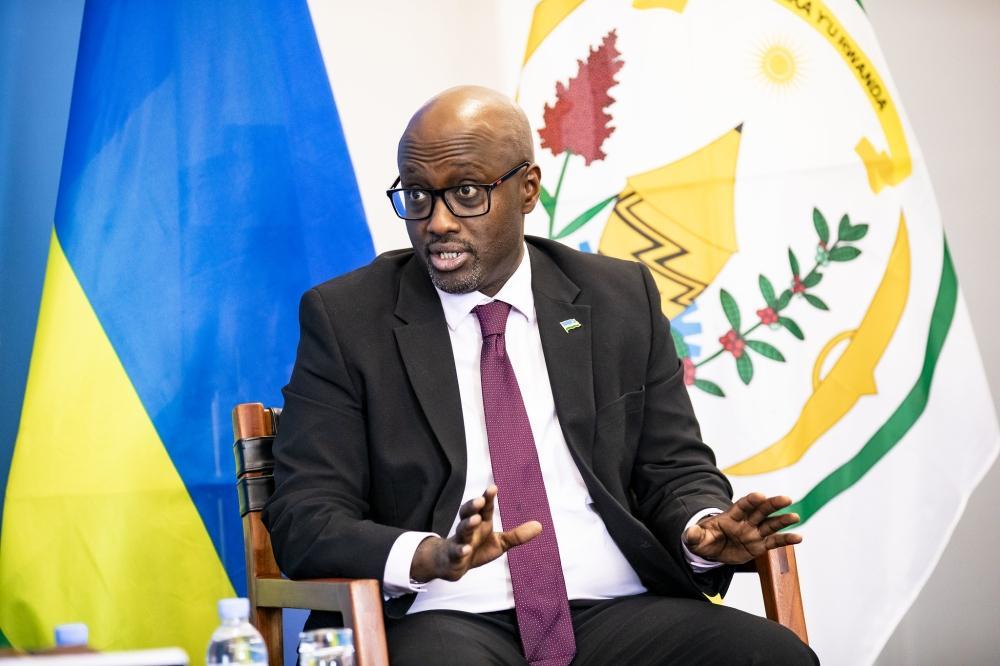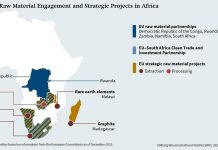Africa-Press – Rwanda. The Minister of Foreign Affairs and International Cooperation, Olivier Nduhungirehe, has rebuked his Belgian counterpart Maxime Prevot over a statement blaming Rwanda for the insecurity in eastern DR Congo.
Nduhungirehe said Prevot’s statement contained “not only pure neo-colonial narrative, but also hypocrisy.”
Reacting to Rwanda’s suspension of development cooperation with Belgium due to the European country’s position in the DR Congo security crisis, Prevot said on Tuesday, February 18, that Brussels was reviewing its cooperation with Rwanda “with a view to taking decisive measures in response to the situation.”
The Rwandan government said its decision to suspend a five-year development cooperation agreement with Belgium was because the European country was leading an “aggressive campaign, together with DR Congo, to sabotage its access to development finance, including in multilateral institutions.”
In response to Prevot’s statement, Nduhungirehe said the Belgian government had always been “silent” and “looked away” from the problems of DR Congo which have been a major threat to not only the Congolese people but also the Great Lakes Region.
DR Congo and Rwanda are former colonies of Belgium. Nduhungirehe said Belgium ignored Rwanda’s security concerns about threats by Congolese leaders.
“When [Congolese] President Félix Tshisekedi supported and armed the FDLR genocidal force, which he embedded in his own army, Belgium saw it but did nothing about it. When President Tshisekedi publicly and repeatedly promised to overthrow the government of Rwanda and to bomb Kigali without setting boots on the ground, Belgium heard it loud and clear but remained silent,” he wrote in post on X on Wednesday.
The minister added that when Tshisekedi spent billions of dollars to acquire heavy weaponry, including attack drones and fighter jets, to achieve “his proclaimed goal,” and when he put in place a military coalition made of local militias, the FDLR genocidal force, Burundian and SAMIDRC forces, as well European mercenaries, for the same purpose, Brussels was fully aware but didn’t act.
“When the FARDC and its criminal militias persecute and kill, in broad daylight, the Congolese Tutsi in North Kivu, the Banyamulenge in South Kivu and the Hema in Ituri, Belgium is informed to the fullest but chooses to look the other way,” he noted.
“When the Belgian Foreign Minister claims that his country wants ‘a professional suspension process that preserves the gains of our longstanding cooperation for the benefit of the Rwandan people,’ this is not only pure neo-colonial narrative, but also hypocrisy,” he added.
The Belgian hand in Rwanda’s tragic history
Speaking to The New Times earlier, experts in history and international relations pointed out that Rwanda-Belgium relations, have, in the past years been characterised by a number of challenges, for which Belgium can be blamed, and yet it has done so little to solve them.
Etienne Ruvebana, an Associate Professor at the University of Rwanda and a scholar in international law, noted that Belgium’s divisive colonial policies laid the foundation for conflicts that culminated in the 1994 Genocide against the Tutsi in Rwanda.
“[Belgian colonialists] claimed that they had done studies that showed that the Tutsi were smart and had to be the ones to go to school, for example. Later on, they turned around and told the Hutu that they had been taken advantage of by the Tutsi,” Ruvebana said, noting that such paved the way the tragic history that the Rwanda went through.
He added that in the 1990s when the genocidal government was fighting against the RPA, Belgium was among the first countries to give support to the government, despite its ethnic ideology.
Then, when the genocide started in 1994, he noted that Belgium withdrew its army from Eto Kicukiro, leaving over 2500 Tutsi in the hands of Interahamwe militia.
“The Belgian soldiers left, yet there was no doubt that the people would be murdered. Though Rwanda did not take Belgium to international courts for this, it is something that a country can take another to courts to be held responsible,” he noted.
Talking about the eastern DR Congo problem, Ruvebana noted that the Belgians were responsible for creating the colonial borders in Africa, yet they don’t seem to be well invested into getting solutions as the region suffers problems like ethnic antagonism.
For More News And Analysis About Rwanda Follow Africa-Press






